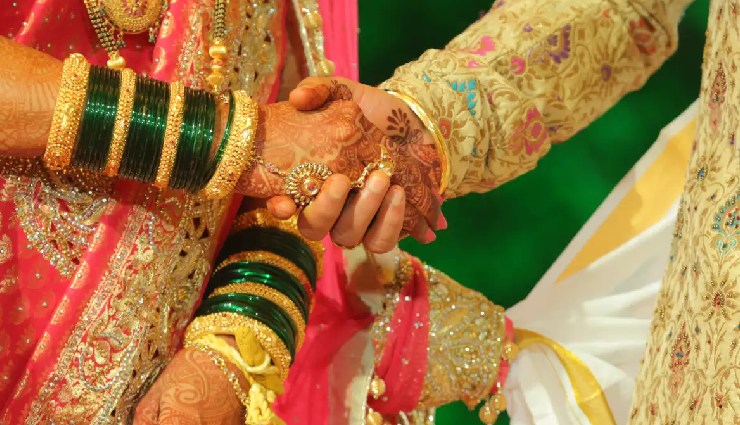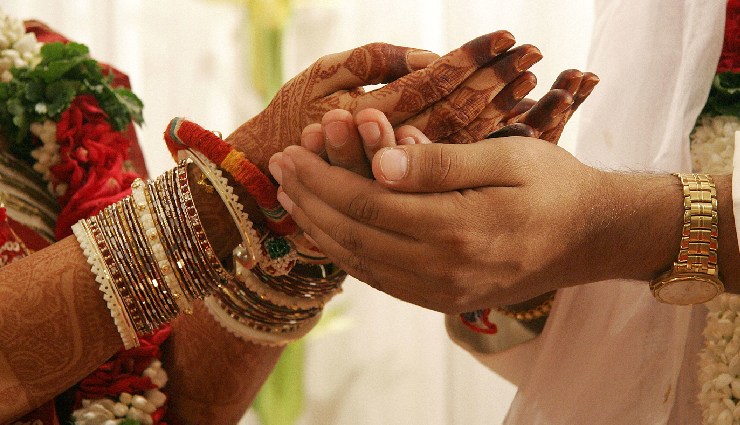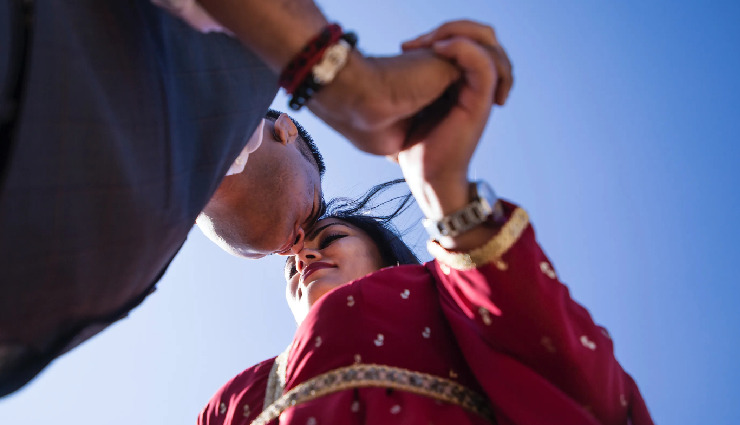- Home›
- Mates & Me›
- 10 Facts About Arrange Marriages You Didn't Knew
10 Facts About Arrange Marriages You Didn't Knew
By: Saloni Jasoria Wed, 25 Dec 2024 07:00:27

Marriage can be compared to cheese—it requires patience, but when nurtured correctly, it can be truly delightful!
Arranged marriages, often considered traditional or even old-fashioned, have been a cornerstone of many cultures for centuries. These unions have frequently resulted in surprising compatibility and enduring relationships.
But how much do you really know about the captivating world of arranged marriages? Have you ever wondered why they tend to have lower divorce rates compared to love marriages or which fascinating customs still thrive today?
In a world dominated by dating apps, it’s intriguing to see how arranged marriages continue to flourish. What unique factors contribute to their success, and why do they still hold such strong appeal?
This article explores some surprising facts about arranged marriages, shedding light on the cultural, practical, and emotional aspects of this time-honored tradition. Whether you’re curious about their roots or want to understand their modern dynamics, this read might challenge your perspective on love and commitment.

What is an arranged marriage?
An arranged marriage is a union where families—often parents or close relatives—play a significant role in selecting a partner for their loved one.
Unlike love marriages, which are spontaneous and based on personal choice, arranged marriages involve thoughtful deliberation and compatibility assessments. Families typically evaluate values, lifestyles, and long-term goals to ensure a good match.
This practice has deep roots in the cultural traditions of regions such as South Asia, the Middle East, and parts of Africa and East Asia. Historically, it was also prevalent among royalty and noble families to secure alliances, wealth, or territorial bonds.
Today, the concept of arranged marriages has evolved. Modern arranged marriages often blend tradition with contemporary values, allowing couples the opportunity to meet, interact, and decide before committing.
At its core, today’s arranged marriage emphasizes compatibility and shared aspirations while respecting tradition. It offers couples not just a partner but also a strong support system, creating a foundation for a fulfilling future together.

# Family Involvement is Evolving
Traditionally, family involvement has been central to arranged marriages, but this dynamic is changing. Today, many individuals prefer having greater control over their choice of a life partner.
While families still play a pivotal role—offering advice, ensuring value alignment, and suggesting potential matches—the decision-making power increasingly lies with the couple.
For example, online matrimonial platforms now allow individuals to browse profiles, communicate directly, and meet potential partners before involving their families. Families often provide their blessings, but the couple takes the lead.
# More Than Compatibility—It’s About Support
While compatibility in values, interests, and backgrounds remains crucial, the real strength of arranged marriages lies in the extended support system they offer.
In challenging times, both families often step in to mediate, offer advice, and provide emotional backing. This collective support ensures couples have the resilience to overcome difficulties together, creating a foundation of trust and cooperation.
# Technology is Revolutionizing the Process
Arranged marriages have embraced the digital era, making it easier to connect with potential matches worldwide. Matrimonial websites and apps enable individuals to search, connect, and build relationships before committing.
For instance, a person in the US can find a compatible partner in India, communicate via social media, and even develop a connection through video calls. Technology bridges distances and expands options, creating a modernized approach to arranged unions.

# Meeting Before Marriage Isn’t Always Essential
In some traditional or rural setups, meeting before marriage isn’t customary. Instead, families rely on thorough background checks and trust in each other’s judgment to ensure a good match.
Though unconventional by modern standards, this practice has worked for many, with the couple often meeting only after engagement or the wedding itself. Trust in family decisions and mutual respect form the basis of such unions.
# Commitment Precedes Romance
In arranged marriages, commitment often takes precedence over romance. The belief is that love grows over time through shared experiences, trust, and mutual efforts, rather than instant chemistry.
For example, a couple may not feel a romantic connection immediately but, over time, develop deep affection and understanding through their commitment to making the marriage work.
# Personal Choice is Becoming Paramount
One of the biggest shifts in arranged marriages is the increasing importance of personal choice. Families now play more of an advisory role, with individuals actively participating in the selection process.
For instance, a person might explore matches through online platforms or community networks while seeking their family’s guidance. This blend of autonomy and tradition ensures both parties are comfortable and invested in the decision.
# It’s About Joining Families
Arranged marriages often extend beyond the couple to include the integration of two families. This focus on family alignment ensures a robust support system for the couple throughout their life together.
When challenges arise—be it a financial crisis or personal loss—the united support of both families provides strength and guidance, fostering a sense of community and shared responsibility.
# Arranged Marriages Can Be Thrilling
Contrary to popular belief, arranged marriages can be just as exciting as love marriages. The journey of discovering a partner, understanding their quirks, and building a connection over time is full of anticipation and joy.
For example, a couple who meets through an arranged setup might experience the thrill of learning about each other’s personalities and growing closer with each interaction.
# Divorce is No Longer a Taboo
The idea that divorce is unacceptable in arranged marriages is fading. While divorce may still carry stigma in certain cultures, people are now more open to leaving unhealthy relationships.
For instance, a couple who realizes they lack compatibility may choose to separate without societal judgment, prioritizing their well-being over societal expectations.
# Effort is Key to Success
Arranged marriages, like any relationship, require consistent effort to thrive. Emotional connection, effective communication, and shared goals are essential to maintaining a fulfilling partnership.
Whether it’s planning quality time together, resolving conflicts constructively, or nurturing mutual respect, couples in arranged marriages must work to keep their bond strong. The added emphasis on respect and family support from the beginning often makes this process smoother and more rewarding.
Related Stories:
# 13 Ways To Have an Intimate Conversation With Your Partner
# 10 Silly Mistakes To Avoid When Resolving Conflict in Marriage
# 15 Logical Reasons Why You Should Stop Explaining Yourself During Argument
# 9 Tips To Help You Reduce Emotional Reactivity
# 15 Things That Can Happen When You Ignore an Emotionally Unavailable Man
# 9 Effective Ways To Improve Emotional Openness in a Relationship





